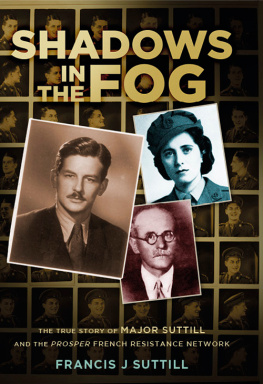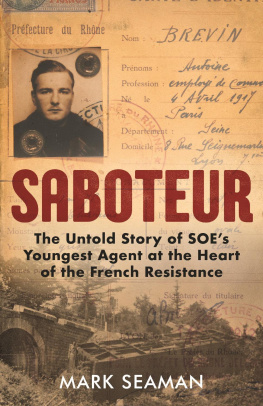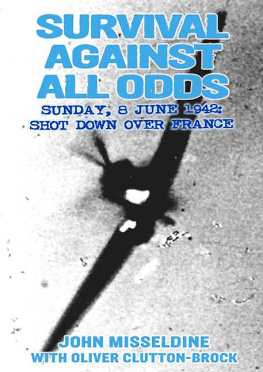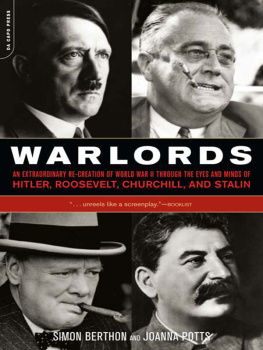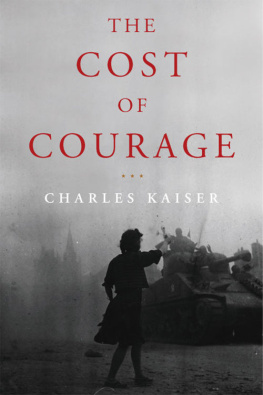

Major Francis Alfred Suttill, DSO. Photo taken when a Lieutenant in 1941/42. (Authors collection)
For his grandchildren Emma and Sami and the families of all of those who fought with him for the freedom of France.
Truth does not do as much good in the world as the semblance of truth does evil. Franois VI, Duc de La Rochefoucauld
CONTENTS

T he Special Operations Executive (SOE), one of a handful of wartime British secret services, was only in existence for less than five years, but its activities and personnel have attracted undiminished scrutiny and controversy ever since it came into the public gaze at the end of the Second World War. Discernibly less secret than its wartime colleagues (and sometime rivals) MI6 and MI5, its activities started to become public knowledge scarcely before hostilities had ended. The SOEs work in France drew particular attention as a result of the countrys strategic importance and the special resonance drawn from the fact that many, if not most, of the agents of its F Section were British citizens. Publishers soon grasped that there was a ready market for tales of British secret agents engaged on clandestine operations in Occupied France and, as early as 1945, George Millar became the first member of F Section to write his memoirs. Interest was further increased with the highly publicised gallantry awards made to SOE heroes and heroines such as Tommy Yeo-Thomas, Odette Sansom and Violette Szabo. Subsequent biographies of these agents became best sellers. But soon, darker tales began to circulate. While ghostwritten autobiographies of the agents and hagiographic biographies described sometimes real, sometimes exaggerated and sometimes even fictional feats of derring-do, other writers started to make more critical assessments of SOEs achievements in France.
Perhaps the most controversial debate in Britain and France concerned the rise and fall of SOEs largest circuit (or network), PROSPER. It was created and led by Francis Suttill who had been brought up in France and England, and in peacetime had practised as a barrister. He was married with two young sons. While serving in the British Army, his language skills marked him out as a potential recruit for SOE and, after specialist training, he was parachuted into enemy territory in October 1942. Thereafter he developed a very substantial circuit that eventually spread throughout much of the old occupied zone of France. As speculation grew on both sides of the Channel that an Allied invasion was imminent, the increased recruitment of local personnel and the delivery of stores by the RAFs supply drops began to turn PROSPER into a veritable army. Perhaps the circuit grew too large too soon; the bigger it got, the more vulnerable it became to the implacable and relentless German security forces. Through a variety of circumstances, a wave of arrests took place amongst Suttills followers and then in the ensuing weeks the Germans exploited the leads with ruthless efficiency. Ultimately the network was completely dismantled with more than 150 members of PROSPER falling into German hands.
The destruction of this pivotal feature of F Sections plans for fomenting resistance in Occupied France attracted post-war controversy and the circumstances behind PROSPERs collapse inspired a profusion of official and personal enquiries. Formal post-war French investigations failed to identify any single cause or culprit while a variety of British authors offered sundry theories and speculations. A major limitation of these analyses of the 1950s and 1960s was that they were conducted without the benefit of access to SOEs official archives. These remained classified and therefore closed to private researchers. An SOE Advisor was appointed in 1959 by the Foreign Office to answer questions from the closed archive but he applied his brief largely to inhibit the increased probing of SOEs secrets (although, thankfully, his successors proved much more forthcoming). Finally, in 1966, an official history, SOE in France by M.R.D. Foot, was published. Drawing upon the closed SOE archive and a range of published secondary sources and interviews with a selection of veterans, the book provided an unprecedented and radically clear view of SOEs structure and activities. But this definitive version of events failed to still the debate over the PROSPER controversy and writers continued to dissect the story with their further, unofficial examinations of the affair.
In the 1970s a series of revelations began to emerge about intelligence in the Second World War and, in particular, the British exploitation of deception stratagems. Speculation began to be voiced that PROSPER had been sacrificed on the altar of Operations BODYGUARD and FORTITUDE, the schemes devised to mislead the Germans of the time and location of the Allied invasion of the Continent. Amongst the more fanciful conspiracy theories to emerge were allegations that MI6, the British Secret Intelligence Service, had conspired to betray the work of its SOE rival to the enemy in order to achieve the success of its D-Day deception plans and maintain its primacy in Whitehall.
In 2002 the last of the formerly secret SOE files were released to The National Archives and whatever official evidence about PROSPER that had survived the years was finally available to researchers. Although the number of veterans had sadly diminished and opportunities to garner their oral testimonies has all but ended, the amount of data on the PROSPER tragedy is now substantial and perhaps complete. Seventy years after the events, we stand the best possible chance of learning what really happened.
Francis J. Suttill has written a remarkable book about his namesake father. It is a memorable achievement on many fronts, not least that while it constitutes the story of a sons journey to discover the truth about a father he never knew, it avoids any drift into self-indulgence. His personal drive to find the real facts is evident on every page but the investigation is handled in a clear-headed, forensic manner. The author is not looking for someone to blame nor is he seeking simply to whitewash any criticisms of his fathers decisions and actions. As a result of this rigorously analytical perspective, the book is a far from conventional account of an SOE agents life. Unlike the sometimes fanciful and novelistic approaches of other authors, Francis J. Suttills text is replete with facts and detail ranging from the timing and location of RAF supply drops to an in-depth analysis of the German security offensive launched against PROSPER. While others might have drifted into speculation about what personalities might have thought or said, the story has an exemplary grounding in fact derived from a mass of documentary evidence and the oral testimonies of survivors. The book is a genuine voyage of discovery rather than a validation of preconceptions.
This book will surely be the definitive account of Francis Suttill and the tragic story of his PROSPER circuit. The focus upon blame and guilt that dominated previous studies has been replaced by recognition that there are few blacks and whites but largely a variety of greys. The SOE agents were volunteers and, although they were given the best available training to meet the tasks ahead of them, they were only human. Some of the characters proved stronger than might have been expected in meeting the ghastly challenges confronting them, while others, sadly, did not. The mistakes and failings of the British agents and their French colleagues are generally characterised as human weaknesses not treachery, although such a word still seems applicable to the double agent Henri Dricourt. The book sensibly represents the view that it is not surprising that scared, brutalised and skilfully manipulated agents should have succumbed to the menacing, persuasive powers of their captors. Most accounts of the PROSPER story have focused upon the fallibilities of these agents and made scant recognition of the efficient practices (all too often achieved through brutal coercion) of the German security forces. While British historians have celebrated the successes of MI5s handling of their Double Cross operations and the turning of German agents sent to find the United Kingdoms secrets, it is rarely conceded that their Nazi opposite numbers were sometimes achieving similar results against SOE networks in France.
Next page
